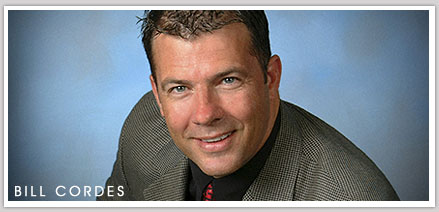
As a youth speaker who has been walking the hallways of America's high schools for the past 20 years I can tell you that I have seen a lot of youth speakers come and go. It is a very challenging and rewarding profession. At the end of this post I am going to give you my short list of who I think you should hire to work with your students based upon the region in which they live. But before I do that I want to give you some tips that will support you in finding a speaker for your event.
Here are some things I would consider before hiring someone to speak at your school, to do a leadership retreat, or to be a part of any leadership initiative in your school. Keep in mind I am giving you the inside scoop, and some of the information that I give may not be popular with other speakers but it will assist you in finding the best speaker for your event.
Look for referrals from friends about people they have heard at conferences and from other speakers. This is the best way to find a successful speaker. If you have had good luck with a previous speaker ask them for a referral for your next program. Most speakers have a short list of people they have referred and they understand your needs. They want you to use them as a resource so they will refer you someone who will do a great job. Ask around your network for speakers that your co-workers have heard at other conferences. From your research create a list of 3-4 speakers.
Google. Facebook. Twitter. Google the speaker, to find out where they have been and what other people have said about them. Go to their web page and learn about them. Add them as a friend on Facebook look at their posts. (Keep in mind that not all speakers FB and Twitter about every location. I quit doing that a few years ago because I didn't want all people to know when I am home and when I am gone.) But what you can see is what other people have said about their programs after leaving their event. When you are researching a speaker look for direct unsolicited testimonials from previous clients on facebook. Students who add speakers and then comment on their page are usually unsolicited and gives you some insight as to what kind of a job they did when they spoke at their school. If they didn't like the speaker they wouldn't go through the trouble of adding them as a friend and then posting on their wall.
- Find a local speaker who is also nationally recognized. Local speakers have a vested interest in your community, and by developing an ongoing relationship with them they will begin to understand the traditions of your school as well as understanding what you are looking for when speaking with your students. Yes, it is true that the majority of my clients are outside of my state but I also appreciate being able to stay home, and will offer a reduced rate because I don't have to get on a plane to speak at an event. (you will also save in travel costs) If you can't find a local speaker who is nationally recognized then find someone who comes to your area often. Since they come there a lot they will also feel a vested interest in your community.
Make sure the speaker fits. While a speaker may do a good job in a keynote presentation they may not have the skills to do a full day event. In order to do a full day event the presenter must have a core of material that they present on a consistent basis that they can adapt to fit the needs of your organization.
Once you have identified the speaker, contact them and let them know the needs of your event. What is your outcome, what are the specific challenges in your school, and then ask them what are the specific topics and activities that they will do to help your students learn the objectives.
Movement, humor and activities. Make sure that your speaker has the ability to incorporate movement, humor and activities into their program. It is easy to have a great message, but it is more challenging to have a message with which students can connect.
Experience speaks volumes! If a speaker has been full time in the business for 5 years or more then chances are they can reach students. This business weeds out the bad ones very quickly.
Here is my short list by region these are speakers that I recommend. All of them are nationally known but I have categorized by region so you can develop a relationship with someone who is close to you.
Hawaii:
Delorese Gregoire:
http://www.winnerscamp.com/ She is my long term mentor in the speaking business and is recognized in Hawaii for her work with teens. She facilitates a week long leadership program on Oahu called: Winners Camp - The Hawaii Leadership Academy. Delorese has her own leadership training site located on Kamehameha Ridge that over looks Sandys Beach/Hawaii Kai on one side and Makapu'u and Waimanalo on the other side. It is a beautiful facility and is a great site for hosting one-day leadership retreats as well.
Western States:
Phil Boyte:
http://www.philboyte.com/ he is one of the best in the business. Phil has been speaking to students since the early 80's and is my mentor in the business. If you want a home run with your audiences of any type he will deliver! He loves kids, is activity driven and speaks to the hearts of students. He can keynote, do workshops, all school assemblies and is great with students, teachers and adults. Phil travels from Northern California.
Keith Hawkins:
http://www.keithhawkins.com/ Keith has been passionate about making a difference for a long time. I have followed him on numerous occasions and his clients rave about the kind of job he does. Keith travels from Northern California.
Jill Esplin:
http://www.jillesplin.com/ Jill is a relative newcomer to the business but has proven herself very quickly as a dynamic speaker, who knows her audience and delivers great content.
Norm Hull:
http://www.normhull.com/ Norm has been speaking to high school students since the 80's as well. He has a proven track record in working with student leadership programs and delivers a great message.
Brad Barton:
http://www.bradbarton.com/ Brad is a corporate speaker, magician who does some youth events. I know that he is a big fan of staying near his home in Utah so if you are near him you should give him a call about working with your students.
Upper Midwest: If you are located in the Dakotas, Minnesota, Wisconsin, or Iowa and you need a local speaker the two best speakers nationally recognized speakers in your area are:
Craig Hillier:
http://www.craighillier.com/ Craig is one of the best workshop and all school assembly presenters I have had the pleasure of meeting. His content is amazing and his humor is always fresh, on target and on purpose. Craig is amazing when it comes to sports related leadership programs. Anything that deals with teams, team captains and creating a quality experience for an athlete Craig is in my opinion the best in the nation. That being said he can hold his own with any speaker in the country when it comes to general leadership.
Patty Hendrickson:
http://www.pattyhendrickson.com/ Patty specializes in leadership development for student organizations. She has a proven track record in working with Career and Technical Student Organizations such as FFA, FCCLA, Skills USA, DECA, FBLA and HOSA. She delivers an amazing keynote and her workshops are quality content and relatable to students.
Mid-States: Kansas, Oklahoma, Iowa, Missouri, Illinois, Indiana, Texas, Colorado, Nebraska,
This is my area:
http://www.billcordes.com/ my specialty is leadership experiences and all school assemblies. I have twenty years of experience and I will make sure I hit the target when it comes to meeting your objectives. Staying local is a priority for me, I am a big fan of return events to school districts getting to know the kids and developing a long-term working relationship so that I can fit your needs. I work with teachers, high school, college students and businesses.
Grant Baldwin:
http://www.grantbaldwin.com/ Grant has taken the speaking world by storm because of his humor and great content. Another relative new comer to be business but all you have to do is google him and see that he has certainly paid his dues in the business. He does keynote programs and workshops.
Rhett Laubach:
http://www.yournextspeaker.com/ Rhett has been around the youth speaking market for nearly as long as me and is ten years younger than me. He is a great author and student of leadership. His speaking style is off the charts fun and energetic and his content is equally as valuable.
Kelly Barnes
http://www.yournextspeaker.com/ Kelly has been speaking professionally for over 5 years and is known for his great stories, great content and humor. He does all school assemblies, leadership programs and workshops.
Brad Montgomery:
http://www.bradmontgomery.com/ Brad is mostly a corporate speaker who is a "Funny Motivational Speaker" who uses humor to teach great life lessons and leadership insights. His schedule is very busy but if you are in the Colorado and surrounding areas you should give him a shot, he might work with you and you will get a great local speaker who has a lot of national identity.
Northeast Region:
Ed Gerety:
http://www.edgerety.com/ Ed and I started speaking at around the same time and he has a lot of experience in keynotes, student assemblies and does some workshops. He has a great message, with humor and great stories.
Southeast Region:
Harriet Turk:
http://www.harrietturk.com/ Harriet is also a seasoned professional in the speaking business. Workshops, keynotes, all school assemblies she is one of the best when it comes to working with youth audiences. Her unique blend of southern humor, stories and living life to your fullest messages are a sure hit with any audience.
Patrick Grady
http://www.patricktgrady.com/ Another southerner, with national appeal. Patrick has an in-depth knowledge of youth organizations, is knock down funny and gives solid content that students can relate to and identify with. I have recommended Patrick on numerous occasions and I have always got rave reviews about his programs.
 As a youth speaker who has been walking the hallways of America's high schools for the past 20 years I can tell you that I have seen a lot of youth speakers come and go. It is a very challenging and rewarding profession. At the end of this post I am going to give you my short list of who I think you should hire to work with your students based upon the region in which they live. But before I do that I want to give you some tips that will support you in finding a speaker for your event.
As a youth speaker who has been walking the hallways of America's high schools for the past 20 years I can tell you that I have seen a lot of youth speakers come and go. It is a very challenging and rewarding profession. At the end of this post I am going to give you my short list of who I think you should hire to work with your students based upon the region in which they live. But before I do that I want to give you some tips that will support you in finding a speaker for your event.



